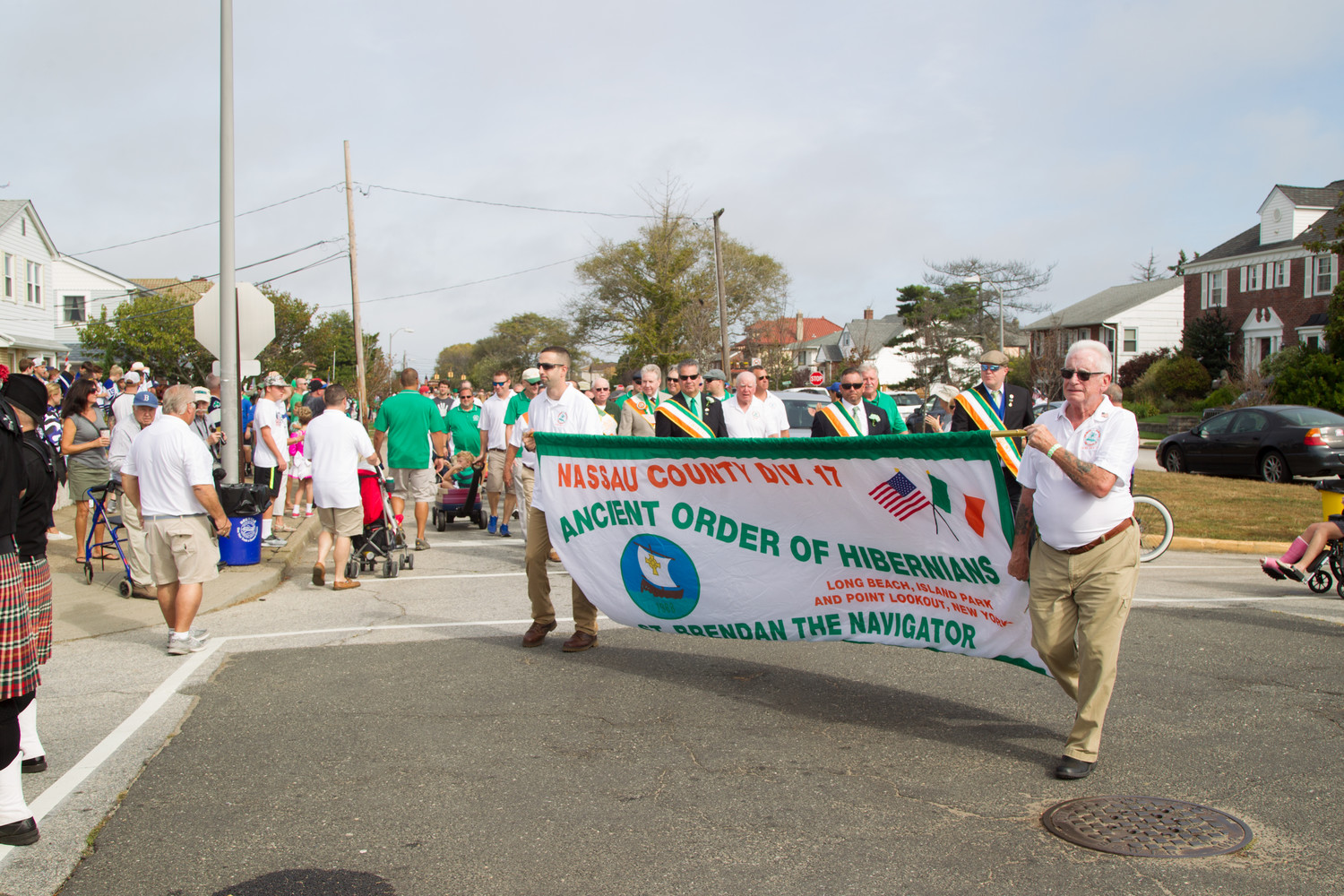Long Beach considers raising event fees
Organizers oppose proposal to cover police, sanitation expenses
Long Beach residents and event organizers turned out for a public hearing on June 19 to criticize a recent proposal by the city to raise the cost of special-event permits in the midst of the city’s financial woes.
The permit fee for special events, such as Irish Day and the annual Long Beach Polar Bears Super Bowl Splash, would be raised from $120 to $250, Corporation Counsel Rob Agostisi said at the hearing.
If approved by the City Council, the measure would also require organizers to cover the city’s expenses, such as police overtime, in advance. The city would determine the anticipated cost before each event, Agostisi explained, and would refund organizers if they are overbilled or issue them an invoice if they are underbilled.
“We obviously have a jewel of a resource here at the city, and everybody who comes down here and wants to have events here . . . knows it,” Agostisi said, adding that the city has had a “very generous policy” in years past.
The council will revisit the proposal at another public hearing set for Aug. 21, at 7 p.m.
The city pays about $400,000 each year in employee overtime, officials said, to host events like the Super Bowl Splash, Irish Day and the Michelle O’Neill Volleyball Tournament.
The proposal to require organizations to cover those expenses was discussed during budget talks in May, when officials suggested ways to fill a $4.5 million budget gap. The council approved a $95 million budget that included an 8.3 percent tax increase to fill the gap.
Pete Meyers, who has organized the Polar Bears Splash with Kevin McCarthy since 1998, said they might not be able to afford to cover the event’s expenses.
“We do understand that there’s a cost to our event, but we do feel that there’s probably 100,000 items out there, between sweatshirts, T-shirts, magnets that say ‘Long Beach’ on them, and there’s a price to goodwill that you can’t really calculate,” said Meyers, who runs a volunteer group called the Long Beach Polar Bears that raises money for the Make-A-Wish Foundation.
The group has raised more than $6 million for the foundation, he said, and granted hundreds of wishes for critically ill children since the event began 20 years ago. If organizers receive a $50,000 bill, he added, it would drastically reduce the amount of wishes that those children could be granted.
Meyers also said that the city benefits from the annual event, because the tens of thousands of people who flock to Long Beach each Super Bowl Sunday spend money at local businesses.
Carol O’Neill, who organizes the annual Michelle O’Neill Volleyball Tournament, which raises money for children with cancer and special needs, echoed those sentiments.
“We’ve always paid the permit fee,” she said. “We’ve always paid for security.” The event honors her daughter, Michelle, who died of cancer in 1996, at age 24.
“I really hope that we can continue to hold our event in the West End,” O’Neill said, adding that the tournament also attracts thousands of people to local businesses every year.
Members of the Ancient Order of Hibernians Division 17 also expressed concerns about the proposal. They said they pay the city between $15,000 and $20,000 each year when they host Irish Day. The remaining money earned through the event — usually between $5,000 and $10,000 — is donated to charity, including local scholarships.
But AOH members said that the costs of city services that have been mentioned would be more than the organization could afford, and that a requirement to reimburse them would threaten the future of the event.
Allison Blanchette, who runs the annual Lemonade Pedal, a bicycle outing that promotes bicycle and pedestrian safety, said, “I am moving the Lemonade Pedal outside of Long Beach this year because I cannot afford that fee.” She asked council members to avoid grouping large events with smaller ones run by local nonprofits, and suggested that they partner with organizers to figure out a solution.
Agostisi said that the permit fee reflects the cost of the internal research and analysis that goes into planning each event.
“This is frankly a paltry amount to collect in connection with that expenditure of time and resources that goes into planning these events,” he said. “We saw this especially with Pride last year.”
“It’s really unfair that there’s no sliding fee type of thing,” Blanchette said. “I’m thinking of our civics as well. I’m thinking about maybe a Girl Scout troop that wants to hold an event. You’re telling them it’s going to cost $250 to file a piece of paper? That’s not what Long Beach is about. The specialness of this city is that we have great, vibrant community events.”

 47.0°,
Fair
47.0°,
Fair 




